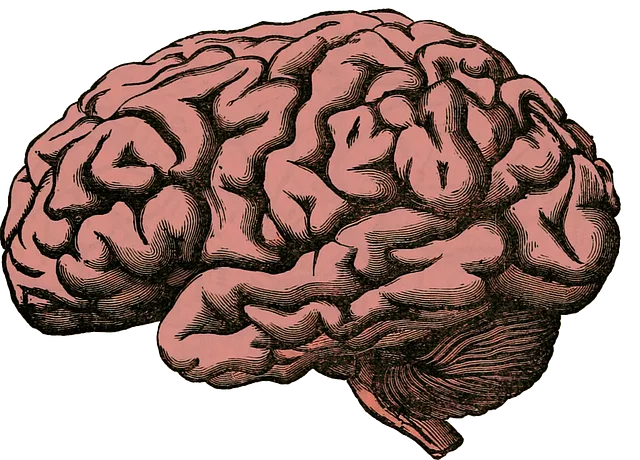The Kaiser Permanente mental health department in Boulder prioritizes cultural competency training to enhance patient care for diverse communities. Through comprehensive workshops and programs, they equip healthcare providers with skills to understand and respect cultural backgrounds, improve communication, build trust, and offer tailored stress management techniques. This approach, including accessible phone line resources, revolutionizes mental health support by fostering inclusive dialogues and improving outcomes for all patients. Effective training relies on clear goals, evaluation, and continuous improvement strategies, benefiting both healthcare providers and diverse patient communities. Contact the Kaiser Permanente mental health department in Boulder at [phone number] for more information.
“Cultural competency in healthcare is no longer a nice-to-have, but an imperative. This article explores how organizations like Kaiser Permanente Boulder’s Mental Health Department are leading the way in training. We delve into the significance of cultural competence, highlighting its impact on patient outcomes and provider satisfaction. Learn about essential training components and effective implementation strategies, inspired by Kaiser Permanente Boulder’s approach. Discover how you can access their resources and elevate your practice with continuous improvement techniques.”
- Understanding Cultural Competency in Healthcare: Why It Matters
- Kaiser Permanente Boulder's Mental Health Department: A Resource for Training
- Essential Components of Effective Cultural Competency Training
- Implementation and Evaluation Strategies for Continuous Improvement
Understanding Cultural Competency in Healthcare: Why It Matters

Cultural competency is an essential aspect of healthcare that involves understanding and appreciating the diverse cultural backgrounds, beliefs, and values of patients and their families. It’s about creating a welcoming and inclusive environment where everyone feels respected and heard. This concept is particularly crucial in today’s diverse society, where healthcare providers are likely to interact with individuals from various ethnic, racial, religious, and socio-economic groups.
For the mental health department at Kaiser Permanente Boulder, cultural competency training is vital. It ensures that professionals can effectively communicate with clients, gain their trust, and deliver culturally sensitive care. This is especially important when addressing mental health issues, as cultural factors can significantly influence a person’s experience of distress, coping mechanisms, and help-seeking behaviors. By incorporating training on stress reduction methods tailored to different cultures and even risk management planning for mental health professionals, the department fosters an environment where everyone can access support and receive the best possible care. Additionally, public awareness campaigns development centered around cultural competency can further educate the community and encourage open dialogues about mental health.
Kaiser Permanente Boulder's Mental Health Department: A Resource for Training

Kaiser Permanente Boulder’s Mental Health Department stands as a beacon of support and a valuable resource for training in cultural competency. This department offers a range of services, including specialized programs tailored to address the unique challenges faced by healthcare providers in diverse communities. Their expertise lies in facilitating Stress Management Workshops, which are designed to enhance resilience and equip professionals with effective coping strategies.
By reaching out to the Kaiser Permanente Mental Health Department via their dedicated phone number, healthcare organizations can tap into a wealth of knowledge. These sessions not only promote self-care but also foster confidence-boosting techniques, enabling providers to navigate complex cultural scenarios with heightened awareness and improved patient interactions. The department’s commitment to these initiatives showcases its dedication to revolutionizing mental health support within the medical sector.
Essential Components of Effective Cultural Competency Training

Cultural competency training is an indispensable tool for healthcare providers to effectively serve diverse patient populations. A comprehensive program should incorporate several key components, such as community outreach program implementation to build trust and understanding within specific cultural groups, and inner strength development strategies that recognize and respect individual cultural beliefs and values. Participants should gain proficiency in emotional well-being promotion techniques tailored to diverse communities, learning how to create inclusive spaces where patients feel safe to express their needs and concerns.
The program should go beyond surface-level awareness by encouraging open dialogue about unconscious biases, exploring systemic barriers within healthcare that disproportionately affect marginalized communities. By integrating these elements, training becomes a powerful catalyst for positive change, enabling providers to deliver more culturally sensitive care and ultimately improve health outcomes for all patients, including those seeking mental health services through organizations like the Kaiser Permanente mental health department phone number Boulder.
Implementation and Evaluation Strategies for Continuous Improvement

Effective implementation and evaluation strategies are vital for healthcare provider cultural competency training to ensure continuous improvement. Organizations like Kaiser Permanente’s mental health department in Boulder can lead the way by establishing clear goals and measurable outcomes. Regularly conducting participant assessments, using feedback mechanisms, and tracking progress against established benchmarks enable them to gauge the program’s effectiveness. This data-driven approach allows for iterative adjustments, tailoring the training to meet specific needs.
To foster a culture of continuous learning, consider integrating Burnout Prevention Strategies for Healthcare Providers, Community Outreach Program Implementation, and Self-Care Practices into the training curriculum. By doing so, healthcare providers can enhance their cultural sensitivity while also developing resilience and well-being, ultimately improving patient care within diverse communities.
Cultural competency training in healthcare, as demonstrated by initiatives like those at Kaiser Permanente’s Mental Health Department in Boulder, is an essential tool for improving patient care and fostering inclusive environments. By understanding and addressing cultural nuances, healthcare providers can offer more personalized and effective services. This article has explored the importance of such training, outlined key components, and provided strategies for successful implementation. For more information on resources and best practices, interested parties can contact the Kaiser Permanente Mental Health Department in Boulder via their official phone number.






